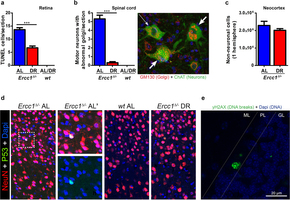Sports Medicine |September 2016 | Abstract: Hyperaminoacidemia following protein ingestion enhances the anabolic effect of resistance-type exercise by increasing the stimulation of muscle protein synthesis and attenuating the exercise-mediated increase in muscle protein breakdown rates. Although factors such as the source of protein ingested and the timing of intake relative to exercise can impact post-exercise [...]







